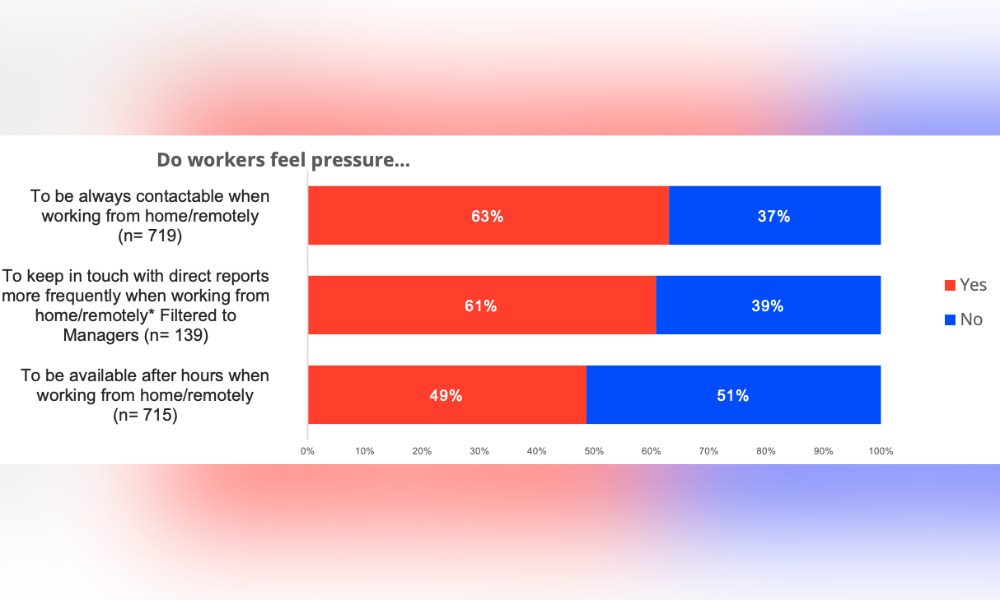
Trust between managers, employees 'begins with providing role clarity and performance expectations,' says expert

A new report from ELMO has revealed emerging trust issues between managers and their staff when working away from the office.
ELMO's Employee Sentiment Index report found that 61% of managers feel the need to check in with their direct reports more frequently when they're working from home or remotely.
But this practice seems to have consequences for workplace trust and work-life balance for employees, according to the report.
While 25% of Australians feel fully trusted when working onsite, this drops to 21% when they are working remotely. In fact, the pressure from managers is making 63% of workers feel that they need to be "always contactable" when they are not working in the office.

Source: The ELMO Employee Sentiment Index
Joseph Lyons, chief executive officer of ELMO Software, said the data reveals a "trust gap between managers and their direct reports, particularly when they're working from home."
Lyons said more needs to be done to ensure that implemented flexible working arrangements are grounded in trust and transparency.
"Building trust is easier said than done and it must be an ongoing process that extends beyond the manager's responsibility," he said in a statement.
"It begins with providing role clarity and performance expectations, and equipping managers and employees with the right goal setting and performance management tools and processes to focus on outcomes, rather than outputs."
This pressure to feel "always contactable" will likely see changes as Australia implements on Monday the right to disconnect in most workplaces.
ELMO's initial findings revealed that 41% of employees will feel more comfortable ignoring out-of-hours calls once the legislation takes effect.
But Lyons said the legislation alone is not a silver bullet to combat the "always on" culture in workplaces.
"Managers need to ensure working hours are being used efficiently and effectively and take steps to promote the benefits of disconnecting from work after hours, which will ultimately improve both productivity and overall employee wellbeing," he said.